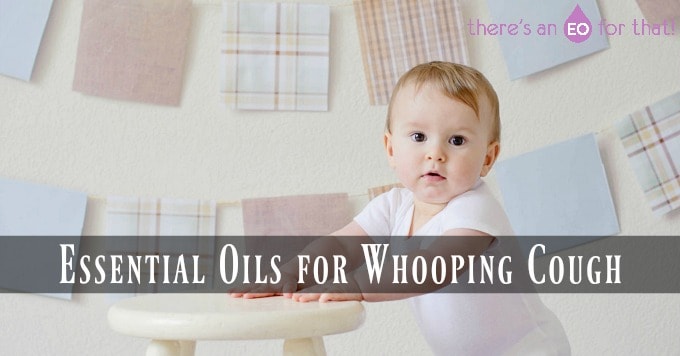
Whooping cough is a very contagious respiratory condition caused by the Bordetella pertussis bacteria, which is why it is often referred to as pertussis. It is characterized by a distinctive high-pitched hacking cough, like a “whoop”, that occurs when the child tries to breathe in after coughing.
The coughing is uncontrollable and quite severe and is easily passed from person to person through the air. The condition can last up to 8 weeks and is most dangerous to infants under 3 months old, the elderly, and those who have impaired immune systems.
When treated with antibiotics, pertussis is contagious for 5 days. If no medicine is taken, it is contagious for 21 days.
Despite modern medicine’s advancement in treating and controlling whooping cough, it remains a dangerous condition, especially in young children.
Whooping Cough Symptoms
Whooping cough often begins with flu-like symptoms which can last up to two weeks before a cough develops. Mucus may begin to develop in the lungs along with a low-grade fever and a mild cough.
Depending on age, there may not be a “whooping” sound.
After the incubation period where you will feel flu-like symptoms), the mild cough will suddenly become violent and severe. Coughing fits can happen up to 20 times per day and can last up to 10 weeks. The worst of the coughing begins to ebb after the first 2-3 weeks of violent coughing.
The coughing can become so rapid and severe that it can be difficult to expel mucus and get in a proper breath. The coughing can also cause vomiting and dehydration. This is why whooping cough is so dangerous in infants and young children.
Once the worst is over, pertussis can still take 2-3 weeks to get rid of as gradual recovery takes place and the coughing fits become less and less severe.
It is important to stay hydrated if you or your child contracts whooping cough.
Drinking plenty of fluids and consuming soups and broth is a good way to not only soothe the throat but also supply the body with much-needed hydration.
Keep windows open (or at least cracked if it’s cold outside) to allow for plenty of fresh air to enter the home, especially in the child’s room.
Using a humidifier in the home will also lessen the chances of spreading airborne bacteria.
The Best Essential Oils for Whooping Cough
Below I have listed some of the most useful essential oils you can use for supporting lung health and disinfecting the home.
Since children are the most susceptible, I have included the safe age range for each essential oil.
- Cajeput (6+ years)
- Cedarwood altas (6+ months)
- Cinnamon leaf (6+ months)
- Cypress (6+ months)
- Eucalyptus radiata (10+ years)
- Frankincense (2+ years)
- Grapefruit (6+ months)
- Lavender (3+ months)
- Niaouli (6+ years)
- Oregano (2+ years)
- Palmarosa (6+ months)
- Peppermint (6+ years)
- Ravensara (6+ months)
- Thyme linalool (2+ years)
Cinnamon leaf, thyme linalool, and oregano essential oil are all excellent oils for diffusing in the home. All three are strong anti-bacterial oils that will help keep the air in your home less contagious.
Simply add a few drops of one of these essential oils into a diffuser and diffuse in the home 20-30 minutes 2-3 times daily.
You can also add 6 drops of one of these essential oils to a 1 oz spray bottle and use it to disinfect frequently touched surfaces to help lessen the number of germs in the home.
Depending on the age of your child, diffusing the essential oils in the home may be the best and easiest option.
For children 6 years or older, adding 2 drops of essential oil like cypress to a salt inhaler may help loosen up stuck mucus and make coughing a little more comfortable.
Additionally, you can add a maximum of 6 drops of essential oil (except for cinnamon leaf, thyme linalool, and oregano – these oils are too hot for topical application) to 1 oz of carrier oil and apply a small amount to the back and chest to help soothe coughing.
The best oils for this quick chest rub include lung clarifying oils like:
- Cajeput (only use 3 drops per 1 oz of carrier oil) (6 + years)
- Cedarwood atlas (6+ months)
- Cypress (6+ months)
- Eucalyptus radiata (10+ years)
- Niaouli (6+ years)
- Peppermint (6+ years)
- Ravensara (6+ months)
This chest oil can be applied 2-3 times daily to help soothe the urge to cough and help ease expectoration.
If your child is old enough, you may also add a few drops of the appropriate essential oil to a bowl of hot steaming water for them to hover their face over 1-2 times daily. This will help moisten the airways and soothe harsh coughing.
A Word of Caution
As you may have noticed, there are no essential oils deemed safe for children under 3 months old. Incidentally, it is this very age range that is most deadly if your infant contracts the whooping cough bacteria.
It is this age range that most deaths occur because infants simply cannot cope with the severity of this condition. They don’t know how or are unable to expectorate the mucus and can actually die from a lack of oxygen and dehydration.
If your infant has whooping cough, I urge you to seek medical attention as soon as possible. In fact, whooping cough at any age (especially in young children) can be quite dangerous and is highly contagious when not treated.
Essential oils are wonderful tools, but I cannot stress enough the importance of seeking proper medical attention if you or someone in your family gets whooping cough.
I advise you to use the essential oils safely in conjunction with what your doctor has prescribed based on their feedback.
Have you ever dealt with whooping cough? What remedies helped? Please share in the comments below!
You may also enjoy reading:
Bronchitis Blends for Children
20+ Effective Essential Oils for Cough
Essential Oils for Colds Plus 3 Effective Recipes!
Wet Cough Remedies Using Herbs
Sources:
Specific Selection of Essential Oil Compounds for Treatment of Children’s Infection Diseases
Pertussis (Whooping Cough)
Antibacterial activity evaluation of selected essential oils in liquid and vapor phase on respiratory tract pathogens

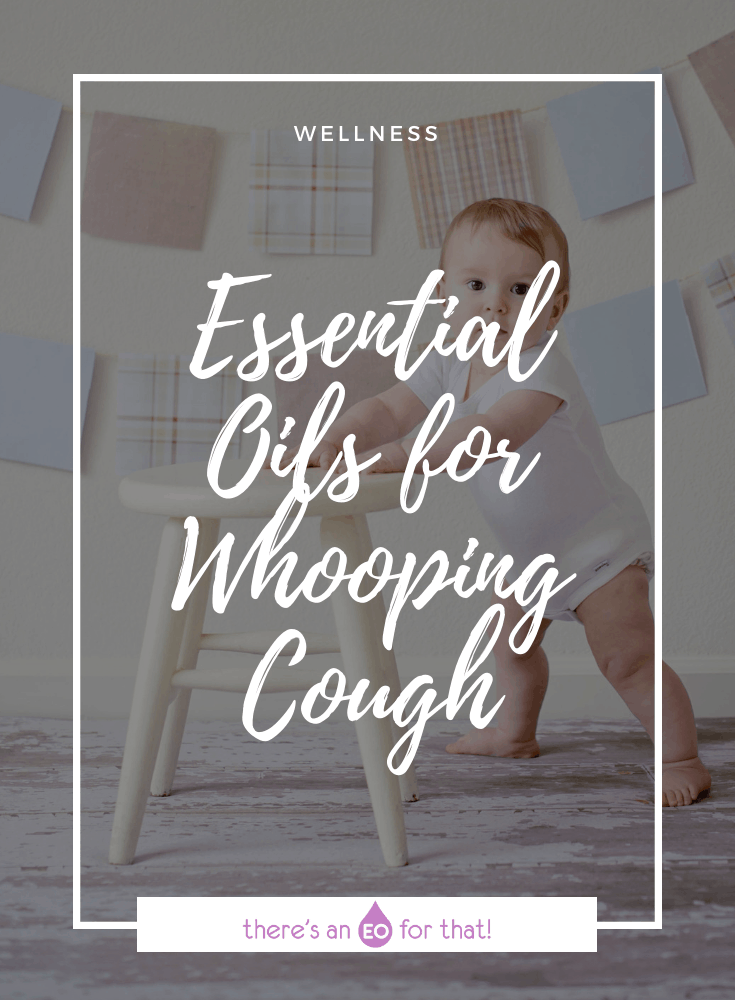
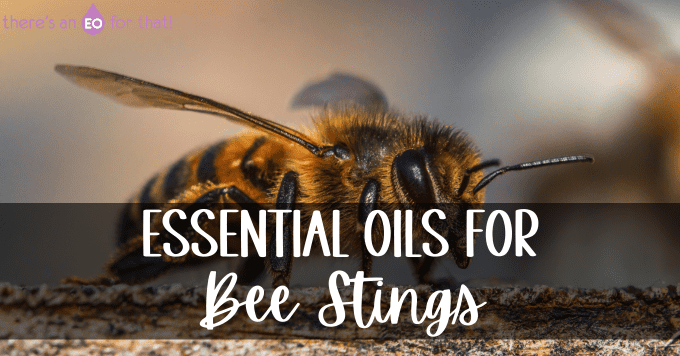
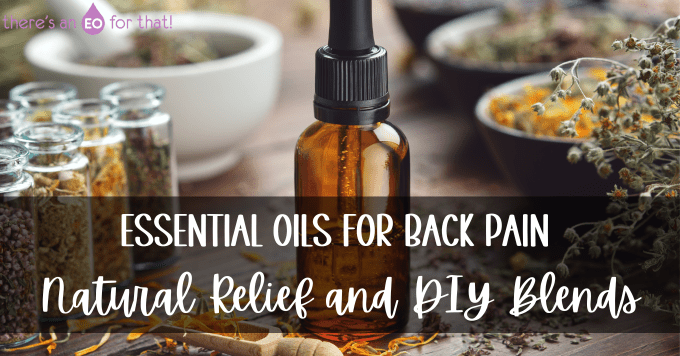
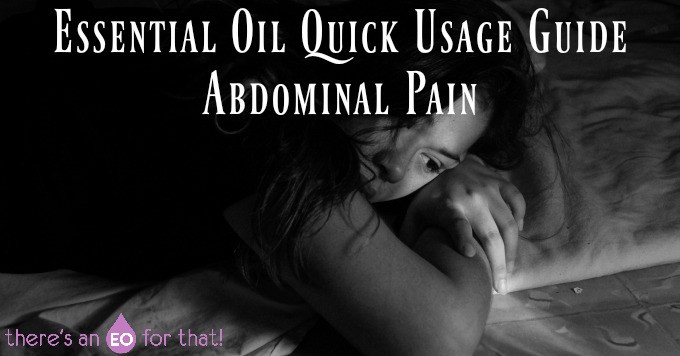

Barbara says
Great topic! My son had whooping cough when he was a senior in high school. He is now almost 28. Thinking back to how I handled it is now a bit of a blur. I made sure he was properly hydrated, ate well and got plenty of rest. I also diffused plenty of essential oils and made up a natural chest rub.